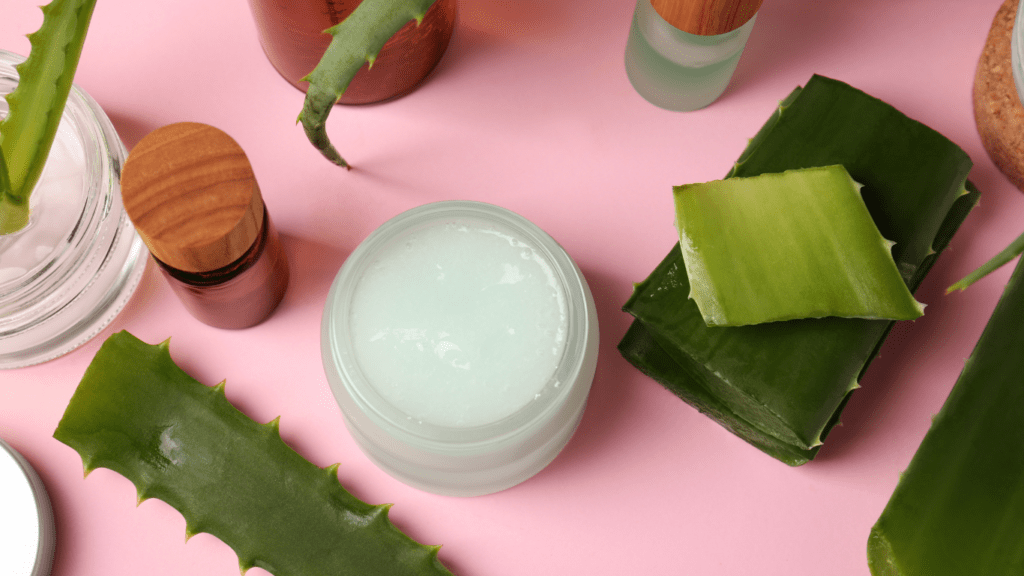Understand Your Skin Type
Identifying your skin type is essential for effective skincare. There are five primary skin types: normal, oily, dry, combination, and sensitive.
- Normal Skin: Balanced moisture, small pores, and few imperfections characterize normal skin. It looks even-toned and seldom reacts adversely to products.
- Oily Skin: Excess sebum production leads to a shiny appearance and larger pores. Prone to acne and blackheads, this type requires regular cleansing.
- Dry Skin: Lack of moisture causes dryness, flakiness, and possible irritation. Fine lines are more visible, necessitating intensive hydration.
- Combination Skin: Exhibits both oily and dry areas, often oily in the T-zone (forehead, nose, and chin) and dry on the cheeks. Balanced care tailored to each area is needed.
- Sensitive Skin: Easily irritated, shows redness, itching, or burning. Requires gentle, hypoallergenic products to prevent reactions.
Determining your skin type helps select suitable products and methods for achieving glowing skin naturally. For example, those with oily skin might benefit from lightweight, non-comedogenic moisturizers, while individuals with dry skin would need rich, emollient creams.
Importance of Consistent Cleansing
Consistent cleansing keeps the skin free from impurities and buildup. Regular cleaning routines prevent clogged pores and maintain a healthy skin barrier.
Morning Routine
I start my day with a gentle cleanser to remove overnight build-up. This prepares my skin for the application of other products. Hydrating cleansers work best in the morning since they don’t strip the skin’s natural oils. For those with oily skin, a gel-based cleanser helps control excess sebum.
Night Routine
In the evening, using a double-cleansing method ensures thorough removal of makeup, sunscreen, and pollutants. First, I use an oil-based cleanser to break down these substances. Follow with a water-based cleanser to clean deeper into the pores. This two-step process maintains clear, glowing skin effectively.
Hydration Is Key
Glowing skin isn’t possible without proper hydration. Daily habits and product choices play vital roles in maintaining well-hydrated skin.
Drinking Water
Adequate water intake is essential for skin health. I aim to drink at least 8 glasses of water each day. Water helps flush toxins and keeps skin cells hydrated. Dehydration can make skin appear dull and dry. By drinking enough water, I support my skin’s elasticity and plumpness.
Using Hydrating Products
I incorporate hydrating skincare products into my routine. Look for ingredients like:
- hyaluronic acid
- glycerin
- aloe vera
Hyaluronic acid can hold 1,000 times its weight in water, ensuring deep hydration. I prefer serum formulations for quick absorption. In the morning, I apply a moisturizer with hydrating agents and follow with sunscreen. At night, I use a richer cream to lock in moisture. Whether it’s a serum or a cream, integrating hydrating products helps maintain a glowing complexion.
Exfoliation Methods
Exfoliation removes dead skin cells, revealing a smoother, brighter complexion. Using different techniques based on skin type can optimize results.
Physical Exfoliation
Physical exfoliation uses granular substances like sugar, salt, or ground nuts to manually scrub away dead skin cells. If chosen, it’s essential to use gentle motions to avoid irritation. Products like facial scrubs or brushes can work well, though individuals with sensitive skin should opt for mild options. Scrubs with fine particles, such as jojoba beads, exfoliate effectively without causing micro-tears.
Chemical Exfoliation
Chemical exfoliation involves the use of acids or enzymes to dissolve dead skin cells. Commonly used alpha hydroxy acids (AHAs), beta hydroxy acids (BHAs), and enzymes target different concerns. AHAs, derived from fruits, work best for dry skin by improving hydration and removing surface cells. BHAs, like salicylic acid, penetrate deeper, unclogging pores and reducing oiliness, making them ideal for oily or acne-prone skin. Enzyme exfoliants, sourced from fruits like papaya, offer a gentler option suitable for sensitive skin.
Benefits of Natural Ingredients

Natural ingredients provide numerous advantages for skincare, promoting a healthy, radiant complexion. Using plant-based elements ensures gentle, effective results without the harsh side effects of synthetic compounds.
Aloe Vera
Aloe vera offers multiple skincare benefits, making it a popular choice for natural treatments. This plant’s gel contains vitamins A, C, E, and B12, which help nourish and rejuvenate the skin. Aloe vera is effective at soothing irritation and reducing inflammation, making it ideal for sensitive skin conditions like eczema or psoriasis. Its hydrating properties enhance moisture retention by strengthening the skin’s barrier, preventing dryness. Daily application of aloe vera can help achieve a healthier, more glowing complexion.
Honey
Honey provides a rich source of antioxidants, making it an excellent ingredient for natural skincare. Its anti-inflammatory and antimicrobial properties help heal and prevent acne, giving the skin a clearer appearance. Honey also acts as a humectant, attracting and retaining moisture, which keeps the skin hydrated and supple. It gently exfoliates dead skin cells, revealing a smoother, more radiant layer beneath. Using honey in face masks or as a spot treatment can significantly improve skin texture and brightness.
Sun Protection
Sun protection is crucial for maintaining glowing skin. It not only prevents premature aging but also reduces the risk of skin cancer.
Daily Sunscreen Use
Regular application of sunscreen is essential. A broad-spectrum sunscreen with SPF 30 or higher protects against UVA and UVB rays. I apply it every morning, even on cloudy days, to shield my skin from harmful sun exposure. Reapplying every two hours is vital, especially if I’m outdoors or sweating.
Seeking Shade
Avoiding direct sunlight helps reduce skin damage. I seek shade during peak sun hours, usually from 10 AM to 4 PM. Wearing protective clothing, including wide-brimmed hats and long sleeves, provides additional protection. I also use sunglasses to shield my eyes from UV rays.
Importance of Diet
Diet significantly influences skin health. Nutrient-rich foods support skin’s natural glow.
Vitamins and Minerals
Vitamins and minerals are essential for skin vitality. Vitamin C, found in citrus fruits and strawberries, boosts collagen production and fights free radicals. Vitamin E, present in nuts and seeds, protects against oxidative stress. Zinc, available in lean meats and legumes, aids in skin healing and reduces inflammation. Consuming foods rich in antioxidants, like berries and green tea, helps combat skin aging and damage from environmental factors.
Avoid Processed Foods
Processed foods can harm skin health. High sugar content in processed foods leads to glycation, which damages collagen and elastin. This results in premature aging and loss of skin elasticity. Trans fats and refined carbs, often found in fast food and snacks, can trigger inflammation and exacerbate acne-prone skin. Opting for whole foods over processed snacks helps maintain clear, radiant skin. Reducing intake of sugary drinks and choosing water or herbal teas also supports overall skin wellness.
Adequate Sleep
Getting enough sleep is vital for radiant skin. Skin repairs itself during sleep, so good sleep hygiene can significantly enhance your skin’s appearance.
Sleep Schedule
Following a consistent sleep schedule helps regulate the body’s internal clock, boosting your complexion. I aim for 7-9 hours of sleep every night. This range allows my skin to undergo essential repair and rejuvenation processes. Keeping a regular sleep pattern, even on weekends, ensures that my skin remains healthy and glowing.
Sleep Environment
A sleep-conducive environment improves sleep quality, which in turn benefits the skin. I keep my bedroom dark, quiet, and cool, around 60-67°F, to enhance sleep quality. Using blackout curtains, earplugs, and white noise machines can help if the room isn’t already dark and quiet. Selecting comfortable bedding and using a good quality pillowcase, like silk or satin, reduces friction on the skin, preventing irritation and promoting a glowing complexion.
Stress Management
Chronic stress can wreak havoc on your skin. Implementing stress management techniques will help improve your skin’s appearance.
Meditation Techniques
Meditation calms the mind, reducing stress and its effects on the skin. I recommend starting with simple breathing exercises. Find a quiet space, sit comfortably, and focus on your breath for just 10 minutes daily. Guided meditations are also helpful. Apps like Calm and Headspace offer accessible sessions, easing you into regular practice. Consistency in meditation lowers cortisol levels, which can lead to fewer breakouts and improved skin tone.
Physical Exercise
Physical exercise boosts circulation and reduces stress hormones, benefiting the skin. Cardiovascular activities like jogging or cycling enhance blood flow, delivering more oxygen and nutrients to skin cells. Strength training also plays a role. Incorporate weights or bodyweight exercises to promote overall health. Aim for at least 150 minutes of moderate-intensity exercise per week. By integrating regular physical activity, the body manages stress better, resulting in clearer, more radiant skin.
Avoid Harmful Chemicals
Using skincare products with harmful chemicals can negatively impact glowing skin. Opt for natural and gentle alternatives to maintain skin health.
Parabens and Sulfates
Parabens and sulfates are common in many skincare products due to their preservative and cleansing properties. Parabens can mimic estrogen and disrupt hormone function, potentially leading to skin irritations and long-term health issues. Sulfates, found in cleansers, shampoos, and body washes, can strip natural oils, causing dryness and irritation. Choosing products labeled “paraben-free” and “sulfate-free” reduces the risk of these adverse effects. Instead, look for natural preservatives like grapefruit seed extract or tea tree oil, and mild surfactants like coco-glucoside.
Fragrance-Free Products
Fragrances may cause skin irritation, especially for those with sensitive skin. Artificial fragrances often contain allergens and synthetic chemicals that can lead to redness, itching, and breakouts. Opt for fragrance-free products to minimize these risks and ensure gentle treatment for the skin. Examples include using products with natural scents from essential oils like lavender or chamomile, which offer soothing benefits without harmful effects.



